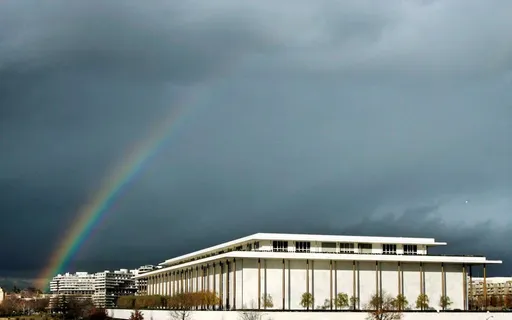Germany is likely to ban the upcoming memoir written by former president of its foreign intelligence service Gerhard Schindler, according to an investigative report published by a government-run news website, Tagesschau.
The decision was reportedly made by the Federal Chancellery (Bundeskanzleramt), which is headed by German Chancellor Angela Merkel.
For the government, the book conflicts with the interests of Germany's intelligence services and sets the wrong precedent for other former spies to share their own experiences in the field, which can potentially impact the country's foreign policy.
Although the government maintains that Schindler's memoirs do not contain any state secrets, after nearly two years of examining the book, the Merkel administration refused to approve it for publication, keeping it under lock and key.
According to Tagesschau, the book carries some interesting insights into Schindler's time as the head of Bundesnachrichtendienst (BND), the federal intelligence service. There are passages revealing how the German government had a meeting between Schindler and the Pakistani secret service ISI cancelled. And how he was happy to hand over gifts to leaders and influential people from the Arab states, gifts like small daggers forged from the steel of the Tirpitz, a battleship sunk during World War II.
The Merkel administration sees Schindler's memoirs as "a clear violation" of secrecy. It also fears, as per Tagesschau, that if Schindler's account is allowed to be made public, the other former domestic spy chief Hans-Georg Maassen, who was sacked from his job in November 2018, will feel emboldened to write his own book and use it as a political tool, since he has joined active politics.
Tagesschau's investigation is largely based on one source in the Merkel administration, who apparently has had access to the book's contents. The Federal Chancellery, headed by Merkel, criticised Shindler for giving away too much information about the inner working of the German intelligence agency, including "its methodology, and (foreign intelligence services), organisation and decision-making processes". The government has commented on the manuscript, highlighting some of the passages describing Schindler's meetings with other intelligence officers, while deleting other contentious parts.
The Chancellor's Office and the Federal Ministry of the Interior are also said to have considered issuing a decree banning such publications from official life. In the end, it was decided that the practice can continue but only after a proper vetting.
Schindler's memoir was under the government's review for over two years. In August 2018, he formally asked Merkel-led Chancellery to have his book draft examined. First, it had to go through the BND to ensure there were no possible breaches of secrecy. Subsequently, the Chancellor's Office went through Schindler's manuscript under the criteria of the Civil Service Act and the confidentiality obligations anchored therein. By November 2019, the examination in the Chancellor's Office was completed. The results were reported to the former head of the BND in mid-December.
According to this information, Schindler himself then suggested to the Chancellor's Office that he would revise his book and present a more "strategic" work. Since the revised version is not yet available, the examination procedure continues.
According to media reports, the former head of the BND himself did not want to comment on the matter. "Oh, please, I don't want to comment," he said on the phone.
Schindler headed the BND from 2011 until his dismissal in June 2016. Against Schindler's will, the German Chancellery ordered him to take temporary retirement over the controversy that linked him with the worldwide data snooping by the US National Security Agency and his own bugging campaigns against friendly states.
























